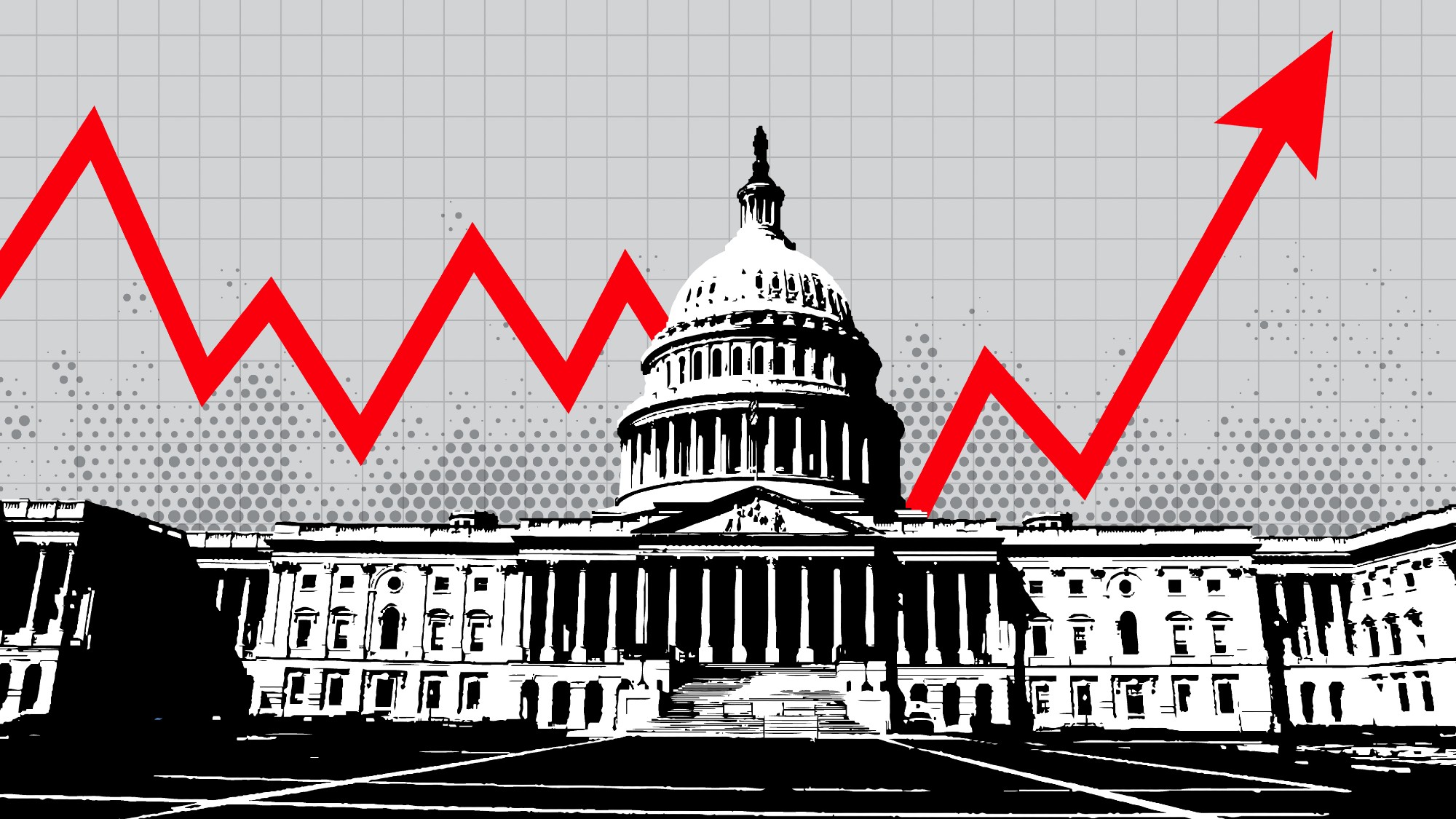How do presidential elections affect the stock market?
If you are worried, take heart: Market changes in response to what is happening politically are likely to be short-term


A free daily email with the biggest news stories of the day – and the best features from TheWeek.com
You are now subscribed
Your newsletter sign-up was successful
Ready or not, Election Day is right around the corner. Most of the attention is on the candidates themselves, but investors also may find themselves wondering what the outcome may mean for the stock market — and, in turn, their portfolios.
While there is no way to predict the future, history can still offer some helpful guidance and hopefully cool some nerves. Here is a look at what past election years have shown and how investors can navigate the uncertainty in the months ahead.
Do elections really matter for the financial markets?
Presidential elections "can shift the nation's policies regarding foreign relations and domestic economic development," and as such, "can cause significant volatility in the market as investors cope with uncertainty about the country's direction," said Forbes.
The Week
Escape your echo chamber. Get the facts behind the news, plus analysis from multiple perspectives.

Sign up for The Week's Free Newsletters
From our morning news briefing to a weekly Good News Newsletter, get the best of The Week delivered directly to your inbox.
From our morning news briefing to a weekly Good News Newsletter, get the best of The Week delivered directly to your inbox.
That said, "the news-cycle volatility of election years has often had less impact on markets than voters might assume," said Fidelity. Instead, "market moves are more likely to be driven by market and economic fundamentals, such as corporate earnings, interest rates and other economic factors," with effects from what is happening politically more likely to be short-term.
What does past market performance tell us about the upcoming election?
"Of course — as always — there is one caveat: Past performance is no guarantee of future returns," said Forbes. With that in mind, here is what history has shown us in regards to the presidential election's impact on the market in years past:
The markets do not necessarily favor one party over the other. "Although popular myths sometimes suggest that one party or the other is 'better' for market returns, the historical data does not bear out these theories," said Fidelity. Indeed, "the S&P 500 has historically averaged positive returns under nearly every partisan combination."
Down-ballot races are worth paying attention to. While many people are focused on who wins the presidency, down-ballot races for Congress can have a major impact as well, as they "will help determine whether the next two years are spent under divided or unified government, and will likely impact how much of its agenda the next administration is able to accomplish," said Fidelity. Still, those results are not determinative — "it seems that even when Congress is controlled by the opposition party (which makes it more difficult for a president to pursue an agenda), markets tend to react in ways similar to when there is a unified government," said Investopedia.
A free daily email with the biggest news stories of the day – and the best features from TheWeek.com
The overall effects of the election on the market are not significant. "Historical data highlights the minimal long-term effects of elections on market performance, with the S&P 500 showing resilience and positive returns regardless of the electoral cycle," said Kiplinger. As further evidence of this, "Vanguard research dating to 1860 finds no statistical relationship between the performance of a 60% equity/40% bond portfolio in presidential election and non-election years," said Vanguard.
How can investors weather election season?
If the news cycle has you biting your nails and constantly checking your portfolio, here are some tips to keep in mind as an investor this election season:
Avoid making any big bets. While it may seem tempting to make bets based on "specific policy or sector impacts," said Fidelity, "the reality is that at this stage no one can predict with any certainty which party will win certain institutions, let alone what sectors, industries or stocks may benefit from the next administration's policies." Instead, aim to stay diversified and stick to your existing financial plan.
Maintain a long-term perspective. Even if the presidential election does end up having an unexpected impact on the market, "it's important to remember that you're investing for long-term goals, and short-term fluctuations won't have lasting effects," said Forbes.
Keep your emotions out of it. While the election may understandably bring up big feelings, you will be better off financially if you can keep those emotions separate from your investment decisions. Indeed, said Vanguard, "part of successful investing is understanding what you can control and letting your emotions take a backseat to the financial plan you and your advisor put in place."
Becca Stanek has worked as an editor and writer in the personal finance space since 2017. She previously served as a deputy editor and later a managing editor overseeing investing and savings content at LendingTree and as an editor at the financial startup SmartAsset, where she focused on retirement- and financial-adviser-related content. Before that, Becca was a staff writer at The Week, primarily contributing to Speed Reads.
-
 How the FCC’s ‘equal time’ rule works
How the FCC’s ‘equal time’ rule worksIn the Spotlight The law is at the heart of the Colbert-CBS conflict
-
 What is the endgame in the DHS shutdown?
What is the endgame in the DHS shutdown?Today’s Big Question Democrats want to rein in ICE’s immigration crackdown
-
 ‘Poor time management isn’t just an inconvenience’
‘Poor time management isn’t just an inconvenience’Instant Opinion Opinion, comment and editorials of the day
-
 What are the best investments for beginners?
What are the best investments for beginners?The Explainer Stocks and ETFs and bonds, oh my
-
 What’s a good credit card APR?
What’s a good credit card APR?The Explainer They have gotten even steeper in recent years
-
 Filing statuses: What they are and how to choose one for your taxes
Filing statuses: What they are and how to choose one for your taxesThe Explainer Your status will determine how much you pay, plus the tax credits and deductions you can claim
-
 3 tips to help protect older family members from financial scams
3 tips to help protect older family members from financial scamsthe explainer Prevent your aging relatives from losing their hard-earned money
-
 What would a credit card rate cap mean for you?
What would a credit card rate cap mean for you?the explainer President Donald Trump has floated the possibility of a one-year rate cap
-
 Planning a move? Here are the steps to take next.
Planning a move? Here are the steps to take next.the explainer Stay organized and on budget
-
 What to look for in a reliable budgeting app
What to look for in a reliable budgeting appThe Explainer Choose an app that will earn its place in your financial toolkit
-
 3 smart financial habits to incorporate in 2026
3 smart financial habits to incorporate in 2026the explainer Make your money work for you, instead of the other way around
